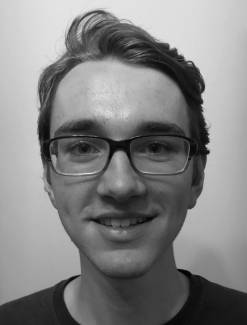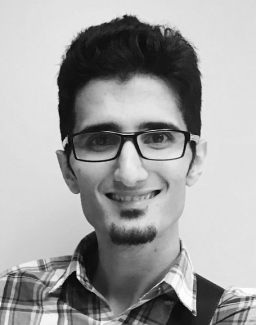This project is part of the effort to prepare Opal for use by patients, providing them with self-management resources such as questionnaires and educational materials.

David Boghen
Undergraduate intern
Faculté des sciences
McGill University
The primary objective of this research project is to detect cancer pain at an early stage by analyzing patients’ medical images.
Development of an algorithm to do this can be achieved by combining two computer science techniques: one that allows us to gather information about pain from medical notes, and one that extracts information from medical images. We will use the first technique in a computer program that will extract and quantify pain intensity recorded in patients' medical notes.

Hossein Naseri
Ph.D. candidate
Medical Physics Unit
McGill University
The primary objective of this research project is to detect cancer pain at an early stage by analyzing patients’ medical images.
Development of an algorithm to do this can be achieved by combining two computer science techniques: one that allows us to gather information about pain from medical notes, and one that extracts information from medical images. We will use the first technique in a computer program that will extract and quantify pain intensity recorded in patients' medical notes.
The second technique will be employed in another program that will analyze radiographic images of cancer patients’ to extract information about their bone metastases (such as tumor volume, and shape). Then, we will implement advanced statistical and mathematical techniques to model the relationship between identified tumor features and extracted pain intensities.
Finally, to validate our model, we will use pain scores that are directly collected from thousands of future cancer patients via a mobile app that has been developed in our group (opalmedapps.com).

Felix Mathew
Ph.D. candidate
Medical Physics Unit
McGill University
This research project aims to examine the mutational signature of ionizing radiation using single-cell sequencing techniques.
The project is using human lymphoblastoid cells donated by the Ashkenazi trio that have a well characterized genome. The cells are irradiated and sequenced to determine the mutations that are induced as a result of the exposure to the ionizing radiation.
Through biostatistical analysis of the human genomic data thus obtained, we will be able to identify the mutational signature of ionizing radiation.
This research project aims to examine the mutational signature of ionizing radiation using single-cell sequencing techniques.
The project is using human lymphoblastoid cells donated by the Ashkenazi trio that have a well characterized genome. The cells are irradiated and sequenced to determine the mutations that are induced as a result of the exposure to the ionizing radiation.
A patient portal is an extension of an electronic medical record system that is accessible to patients. Although patient portals have been around for many years, they have had poor adoption in Canada. This is due in large part to the desire of provinces to invest in large centralized electronic medical record systems and the complexity of implementing such systems. But patients are demanding access to their medical data and do not wish to wait for complex centralized systems to be implemented.

Stacey Beard
Undergraduate intern
Medical Physics Unit
McGill University
A patient portal is an extension of an electronic medical record system that is accessible to patients. Although patient portals have been around for many years, they have had poor adoption in Canada. This is due in large part to the desire of provinces to invest in large centralized electronic medical record systems and the complexity of implementing such systems. But patients are demanding access to their medical data and do not wish to wait for complex centralized systems to be implemented.
Therefore, in this research project, we will expand and evaluate the Opal patient portal, previously developed and implemented at the McGill University Health Centre, to function as a multi-institutional patient portal using a novel asynchronous data federation infrastructure.
This project is part of the effort to prepare Opal for use by patients, providing them with self-management resources such as questionnaires and educational materials.
This project is centered on the data donation aspect of Opal and will involve a Privacy Impact Assessment of the application and the eventual practice of data sharing driven by it.

Roxanne Caron
Undergraduate intern
Faculté de droit
McGill University
This project is centered on the data donation aspect of Opal and will involve a Privacy Impact Assessment of the application and the eventual practice of data sharing driven by it.
Discover

Featured project
Delirium is a condition that, when left unmanaged, is associated with increased mortality and longer hospitalization of patients in intensive care; therefore, its detection should be an integral part of care. It is characterized by confusion, anxiety and reduced alertness. It is estimated that 75% of delirium cases are not detected on admission to hospital. Detecting such an acute condition requires frequent monitoring of participants, which is labor intensive and requires expertise.